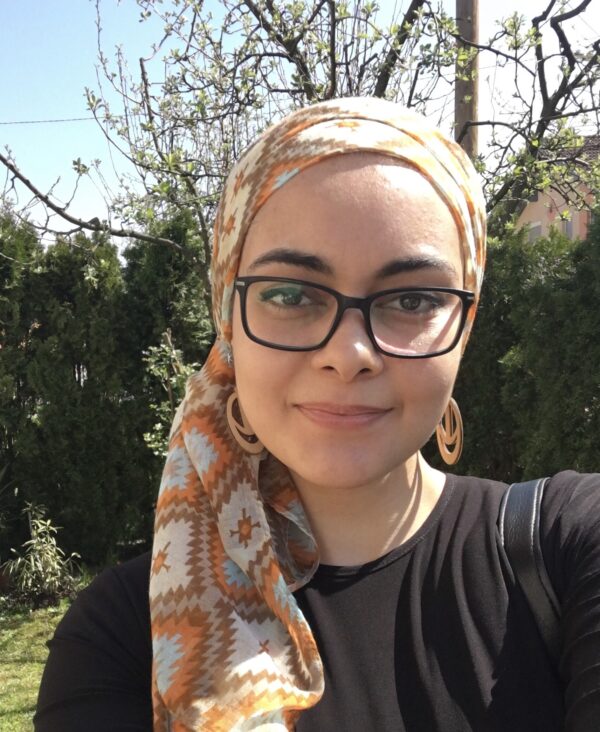6th October 2022
Hospice Care Week: interview with Sarah, our EDI lead
This week is Hospice Care Week, which shines a light on hospice care nationwide. This year the focus is opening up end of life care for all, and we caught up with Sarah El Rayyes, our Equality, Diversity and Inclusion (EDI) Lead to find out how the hospice is broadening its reach to diverse communities.


Research across the UK shows that people from minority groups are less likely to access end of life care. Why do you think there are these inequalities in hospice care?
There are many reasons why hospice care in the UK isn’t as equitable and accessible as it should be. Many communities – such as minority ethnic and religious communities, LGBTQ+, working class people, people with disabilities and homeless people – have faced barriers to end-of-life care for decades.
These barriers include: a limited understanding of the types of services available, fear of stigmatisation and discrimination, past unpleasant experiences in health and social care, lack of cultural sensitivity among healthcare providers, language barriers, and conflicting values between family or religion and the notions of hospice care. This has recently started to improve, as hospices are actively tackling issues within their own organisations, but there is still a lot of hard work to be done.
What have you found so far in your research into the reasons for this at Nottinghamshire Hospice?
The two overwhelming reasons we still struggle to provide care to everyone in our city and county who needs it are misconceptions about end-of-life care and a lack of awareness of how our services are set up. Many people are surprised that our main focus is care provision in patients’ homes rather than at an in-patient unit, that we can take referrals directly from a patient or their family or carer, or that we provide carer support to those who are caring for a loved one.
There is a misconception that a hospice takes control over the patient’s life and isolates them from their loved ones. We are now trying to find ways to spread information about our services in a more targeted way – to people who have so far been under-served and under-represented.
What obstacles do we need to overcome to become more inclusive as an organisation?
Lack of awareness about us is a significant obstacle. There is a lot of space for improvement when it comes to building stronger relationships with community organisations and groups across the city and county.
We also face obstacles to achieving diversity and inclusion within our workforce. There’s a lack of representation within our current workforce – which is something we want to address using positive action.
What are some of the actions the hospice can take to overcome these obstacles and reach those communities we’re not currently reaching?
We aim to attend community events and meetings which will help us build relationships and trust with under-served communities. We plan to review our marketing materials to make sure we communicate how truly open and welcoming we are, and to translate information that would help people access our services into languages commonly spoken in Nottingham apart from English. For example, according to the most recent Census, Urdu is the most commonly spoken language in the city after English.
We are also starting to implement positive action in recruitment to make sure our workforce reflects the diversity of Nottingham and Nottinghamshire.
I understand the hospice is committing to diversity pledges, can you share what these are?
As an organisation we have committed to four main diversity pledges, which we are now using to form a five-year strategy and delivery plan. We go back to these regularly to remind ourselves where our focus should be. Our strategy will outline how we plan to deliver on the pledges and this will be published soon. Our pledges are:
- We commit to fostering an inclusive organisational culture that celebrates our diversity.
- We commit to making our care provision accessible and accommodating to all Nottinghamshire communities.
- We commit to tackling behaviours and attitudes that might reinforce the threat of discrimination, inequality, and prejudice in Nottinghamshire Hospice.
- We commit to implementing processes that will enable us to monitor our progress in EDI, self-assess and self-reflect.
